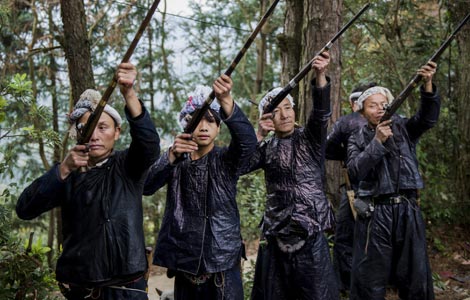Who's being taken for a ride?
Updated: 2013-12-21 07:58
By Raymond Zhou (China Daily)
|
|||||||||||
This can wreak havoc with the consumer price index. I was in an economics forum when the fare was initiated, and a speaker who was a consultant for a State-level decision-making body used Beijing's new low fare as a counterweight for the sharp rise in vegetable prices. I don't know how much transport weighs in the basket of goods and services when calculating inflation, but it has artificially dragged the figures down, rendering the picture rosier than it actually is.

There is an argument that low subway fares benefit ordinary people, and if this fund does not go to such a worthy cause it will go to wining and dining by corrupt officials. While it is true that the subsidy does not go to the privileged, it may not be an either-or case between these two choices. If it is between subsidizing an office worker's subway ride and an official's new Audi, I'm all for the former. But the choice may also lie in allocating the amount to public transport or education or healthcare or helping the urban poor. Or more likely, it could be between subsidizing current riders and funding future lines' construction.
The law of diminishing marginal returns means that a subsidy should go to those programs that help those most in need of help. If you ask Beijing residents to vote for a rise in subway or bus fares, there is no way it's going to pass. It simply goes against common sense for people to desire a higher price for something that is not considered a luxury. But if you ask them to choose among several government programs that need funding, I'm sure most people would pick the right one. And very probably, extremely low subway fares will not be high on the list of priorities.
Even in a market economy, government subsidies are necessary for certain public projects. But the amount of subsidy should be calculated with a profound knowledge of economics. It's not necessarily the lower the better.
Take performing arts. Governments at various levels essentially own all performing troupes in China, which results in heavily subsidizing every ticket to every show. What we get is not higher attendances for high-quality shows, but large numbers of empty seats for extravagant shows that run only a few times. The amount of waste is staggering.
On the other hand, the abolition of the nominal charge for many public museums and parks is a wise move. In the old days, these venues were grossly underutilized because the charge served as a deterrent to anyone who was not otherwise greatly interested. Free admission is necessary to cultivate the habit for museum visits and to allow the lowest of the social echelon, migrant workers, into city parks. It was a sad sight to see them lying outside a park getting a rest while park benches were conspicuously empty.
City officials in charge of public policies should study the theory of price elasticity - and of course the law of supply and demand - before making pricing decisions. When a change in price does not affect consumers' behavior, it has gone beyond the point where price as a leverage can work.
Sure, Beijing needs more subway lines and long-term investment in public transport. However, putting this in the same league with parks and recreation is to ignore the fundamental differences of the two services. Unless the city wants to flaunt largess in public transport as a unique form of welfare, it should consider both the pros and cons of pricing its bus and subway fares at close to gratuitous levels.
Related Stories
Subterranean homesick blues 2013-12-14 07:15
Nation worked up over days off 2013-12-07 06:53
Feel-good stories ask questions of us all 2013-11-23 01:25
Hit litterbugs with fines, not insults 2013-11-16 00:24
In small-town China, movies are big 2013-11-09 00:46
Today's Top News
US sends special envoy to S. Sudan
India applies to UN to try to solve diplomat crisis
Putin pardons oil tycoon Khodorkovsky
China blasts Japan's defense move
Tech bans to be relaxed: US
FDI enters new structural era
Mass protest erupts in Portugal against austerity
Verizon plans more data-request disclosures
Hot Topics
Lunar probe , China growth forecasts, Emission rules get tougher, China seen through 'colored lens', International board,
Editor's Picks

|

|

|

|

|

|





